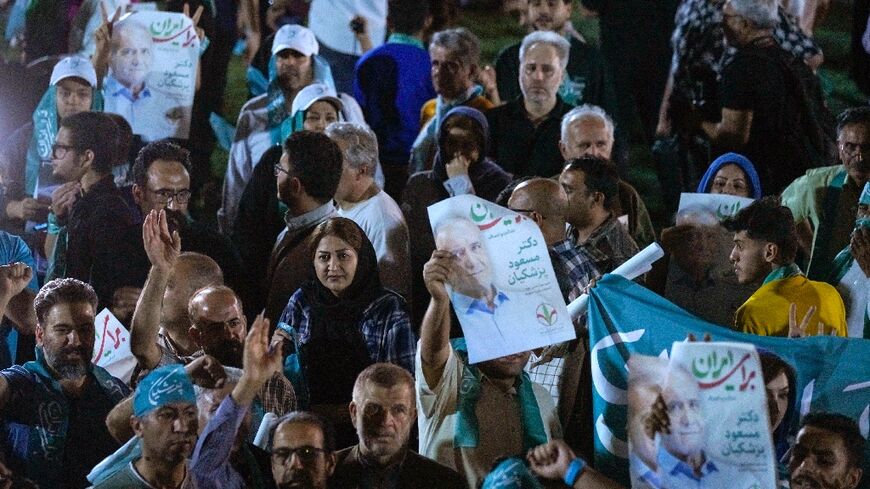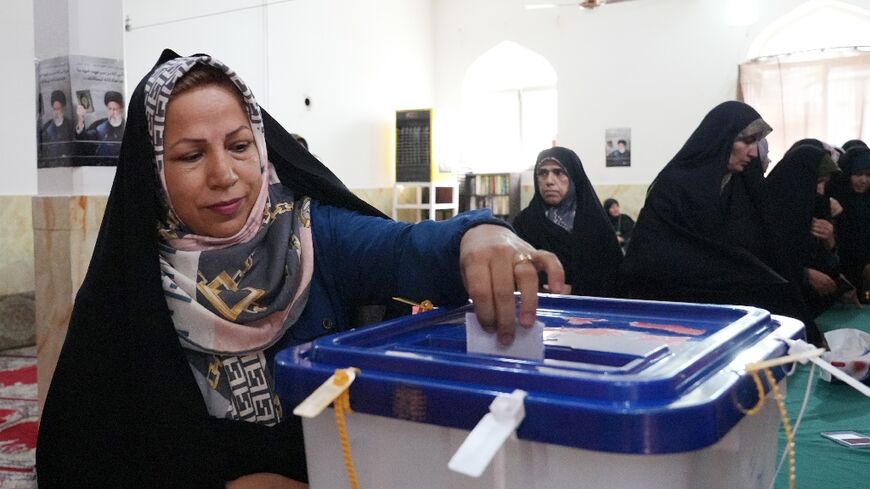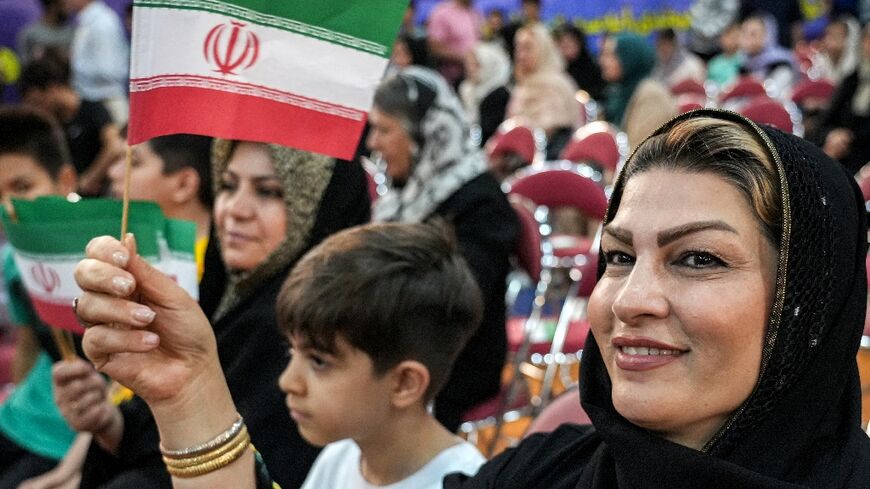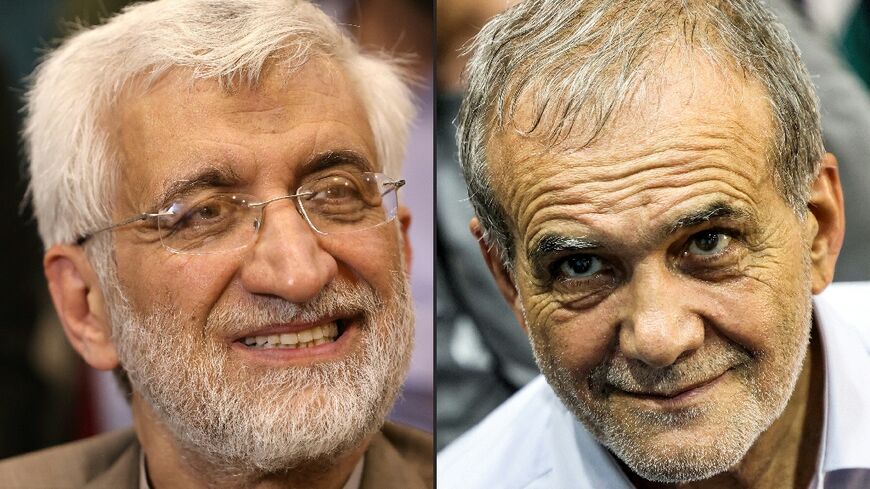Iran presidential hopefuls debate economy ahead of election
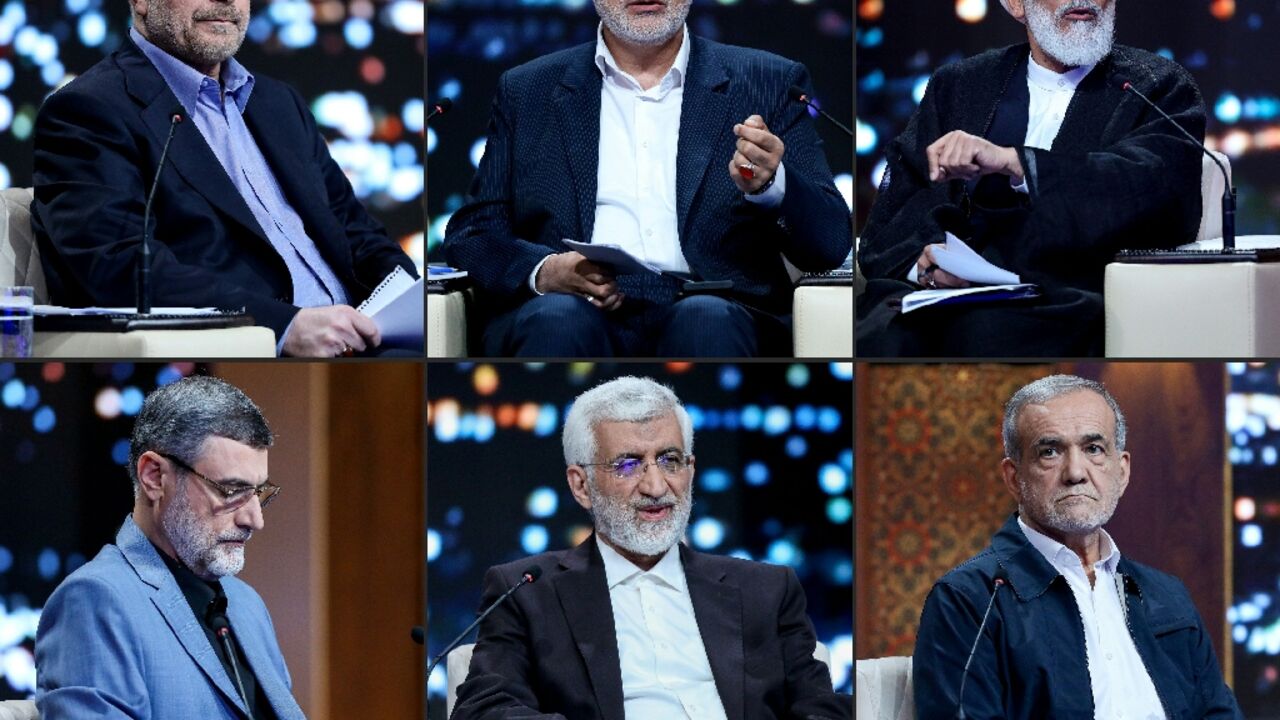
The six candidates vying to succeed ultraconservative president Ebrahim Raisi, who died in a helicopter crash, focused on revitalising Iran's sanctions-hit economy in their first debate ahead of next week's election.
The contenders -- five conservatives and a sole reformer -- faced off in a four-hour live debate, vowing to address the financial challenges affecting the country's 85 million people.
Originally slated for 2025, the election was moved forward after Raisi's death on May 19 in a helicopter crash in northern Iran.
Long before the June 28 election, Iran had been grappling with mounting economic pressures, including international sanctions and soaring inflation.
"We will strengthen the economy so that the government can pay salaries according to inflation and maintain their purchasing power," conservative presidential hopeful Mohammad Bagher Ghalibaf said.
Ghalibaf, Iran's parliament speaker, also pledged to work towards removing crippling US sanctions reimposed after then US president Donald Trump withdrew from the 2015 nuclear deal.
Iran's economy grew by 5.7 percent in the year to March 2024, with authorities targeting a further eight percent growth this year, driven by hydrocarbon exports.
The sole reformist candidate, Massoud Pezeshkian, said he would seek to build regional and global relations to achieve this growth.
He also called for easing internet restrictions in the Islamic republic where Facebook, Instagram, Telegram and X are among the social media platforms banned.
Reformists, whose political influence has waned in the years since the 1979 Islamic Revolution, have fallen in behind Pezeshkian after other moderate hopefuls were barred from standing.
Ultraconservative former nuclear negotiator Saeed Jalili, however, said Iran did not need to repair its relations with the West.
He took aim at Trump, saying his policy of "maximum pressure" against Iran had "failed miserably".
- 'Maximum pressure' -
In the absence of opinion polls, Ghalibaf, Jalili and Pezeshkian are seen as the frontrunners for Iran's second highest-ranking job.
Ultimate authority in the state is wielded by the supreme leader rather the president with 85-year-old Ayatollah Ali Khamenei holding the post for 35 years.
Incumbent Vice President Amirhossein Ghazizadeh-Hashemi said during the debate he would seek to lower inflation following a "political leadership style similar to that of Martyr Raisi."
Raisi easily won Iran's 2021 election in which no reformist or moderate figures were allowed to run. Backed by Khamenei he had been tipped to possibly replace the supreme leader.
Under the late president, Iran sought improved relations with China and Russia while mending ties with Arab neighbours, mainly Saudi Arabia, to avert deeper isolation.
But relations with the West continued to suffer, particularly following the outbreak of the October 7 Gaza war.
Tehran's support for the Palestinian militant group Hamas, coupled with ongoing diplomatic tensions over Iran's nuclear programme have hastened the decline.
Mostafa Pourmohammadi, the only cleric in the running, blamed international sanctions for "blocking the economy" and "making financial transactions impossible".
Tehran's conservative mayor, Alireza Zakani, said the US sanctions were "cruel" but were not the main problem behind Iran's economic hardship.
"We should emphasise the economic independence of the country, de-dollarise the economy and rely on our own national currency," he said.


